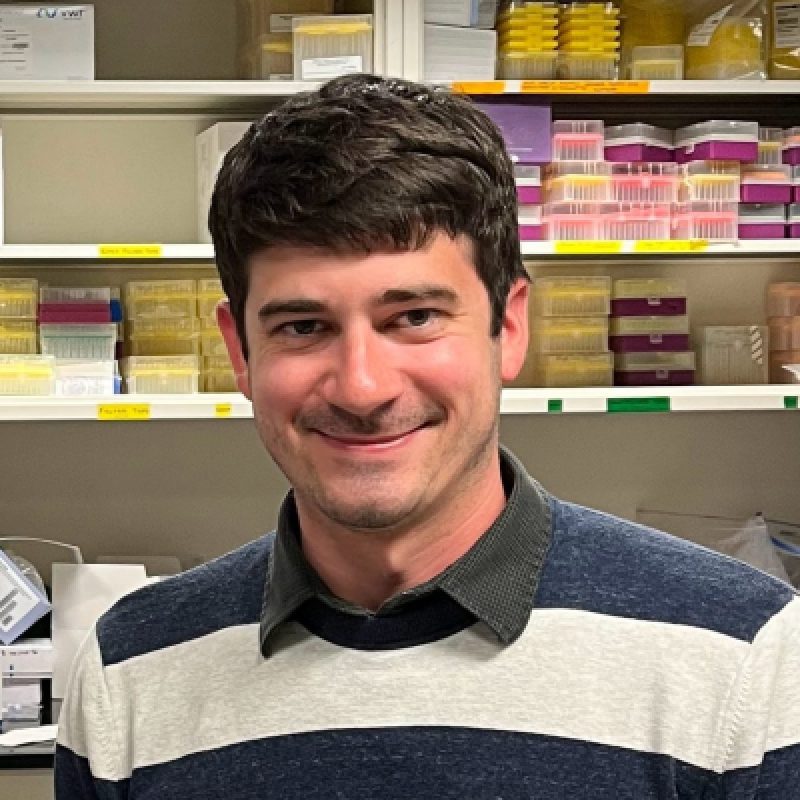Tag: Disease Ecology and Evolution
-

Joshua Kerkaert
Josh’s interest in fungal biology started while earning a BS in Microbiology at the University of Minnesota where he did research on the human fungal pathogens Cryptococcus neoformans and Blastomyces dermatitidis in the Nielsen lab at the University of Minnesota. Josh went on to pursue a Ph.D. in[...] -

Raina Plowright
Our lab seeks to understand and prevent spillover of zoonotic pathogens from wildlife to other species. We develop the science of pandemic prevention through collaborative, transdisciplinary science. We work in the field, the lab, and in silico, all with a commitment to translate the science[...] -

Amandine Gamble
I investigate what drives hosts’ contributing to pathogen dynamics across biological scales, from host-pathogen molecular interactions to host species interactions. To do so, I combine theoretical, observational, and experimental approaches, and consider various study systems in the lab and in the field, including emerging bat-borne[...] -

Anthony Hay
The Hay lab uses methods from microbial ecology, physiology, genomics, and genetics to understand how human activities affect microbes in diverse environmental settings. For instance, we study how handling of milk collection kits affects the microbiome of pumped human milk. Students will use genomics to[...] -

Scott Keith
Scott’s research investigates how endocrine signaling networks regulate animals’ physiological responses to pathogenic microbes. He uses the fruit fly Drosophila melanogaster as a genetically tractable model to investigate the mechanisms by which several key insect hormones and their cognate nuclear receptors both directly and indirectly[...] -

Jaehee Kim
The Kim Lab focuses on the general fields of population genetics and evolutionary biology. Dr. Kim is interested in computational problems relevant to understanding evolutionary processes and population dynamics, and in development and application of statistical methods for inference from genetic data. In addition to[...] -

C Drew Harvell
We study the transmission and impacts of infectious disease in a changing ocean and mechanisms of immune function in marine invertebrates. We work to identify the value of intact ocean biodiversity and develop strategies towards a healthier ocean. -

CIHMID Summer Symposium
REGISTER HERE: https://forms.gle/Svk6ToJ9vrNK4iRV7 CIHMID is pleased to announce our annual Summer Research Symposium to be held on Thursday July 11, 2024. The Symposium will be held in Stocking Hall on the Ithaca campus and will a full day of research presentations from members of our community. A call for submitted abstracts will be released […]
-

CIHMID/CCFI Postdoc Travel Grants
The Cornell Center for Immunology (CCFI) and Cornell Institute of Host-Microbe Interactions and Disease (CIHMID) are pleased to offer support to postdoctoral researchers who plan to attend scientific conferences during the 2022-2023 calendar years. CCFI and CIHMID will provide host labs up to $500 (total) to cover conference costs (registration, travel) for any postdoctoral researcher in […]
-

Marian Schmidt
The Schmidt lab focuses on microbial community diversity, metabolic activity, and genome evolution in aquatic environments. Students will gain experience with microbial ecology and computational tools. As an example project, students can characterize the microbial communities in marine sediments associated with oyster beds to understand[...]
